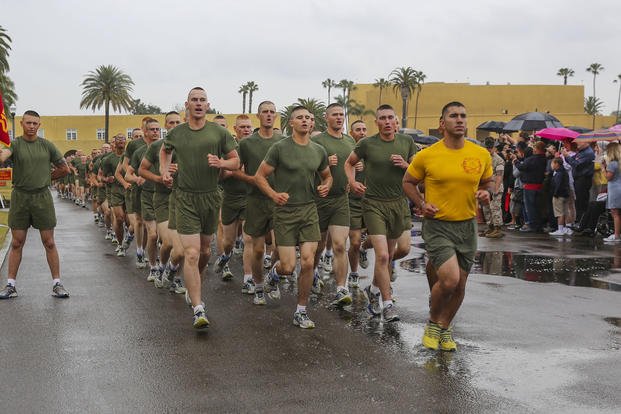According to the Association of Applied Sports Psychology, a performance cue statement is a short statement said to yourself to refocus your concentration. Cue statements help you to focus through challenging environments, situations and negative obtrusive thoughts that impact performance. The use of such self-talk, motivational phrases and even internet memes is nothing new and can add to your success, no matter what difficulties you're encountering.
The goal is to find something that connects with you. Link a phrase to a highly memorable moment, like scoring the winning touchdown or hitting the walk-off home run to end a championship game. Performance cues do not have to be linked to sports. They can be linked to the feeling you had when you finished a tough race, a military Special Ops selection program or earned an A on a test.
Some favorite performance cues include:
Never quit: A classic focus statement when things get tough physically or mentally. If you ever quit something, even as a child, remember how it felt then and use that as motivation never to want to feel that way again. This is great for when things get tough for you and your team. Don't quit. Just see it through to the next day.
DFQ (Don't F* Quit): Another classic focus statement and motivational patch used often by GoRuck participants during long 12- to 48-hour events. Bluntly, it means not to quit on yourself or your teammates.
Game time: When times are tense and you are about to perform, this one helps relieve that anxiety of future performance.
Bring Your "A" Game: Bring it; 100% effort required on this one. Make it count.
Let's roll: Made famous by Todd Beamer on Flight 93 on Sept. 11, 2001, before he and other passengers went after hijackers.
Live to compete, not just survive: A personal line I developed prior to SEAL training and used for its duration. Competing every day to win something makes the day more fun, and you never think about quitting when you think about winning.
Be fast or be last: Great for when the need for competing to win something occurs.
Just do it: Nike marketing.
Protect this house: Under Armour marketing. This is your backyard; defend it.
Easy day: It's a version of the Navy SEAL slogan: The only easy day was yesterday. Turned around, you can apply it to a very challenging day and call it an easy day. Or at the end of a tough day of training, you can say, "Another easy day."
Some may say these are a waste of time, but they have been used by athletes at all levels, special operators, academics, business professionals and others to get over the hump.
To make "self-talk" work most effectively, include some breathing techniques to calm yourself down. I remember some of the best advice I ever had from an instructor was to breathe, then think. It works.
To make this work, according to Ryan Hedstrom in an article written for the Association of Applied Sports Psychology (as referenced above), do this:
Using a cue statement for refocusing during competition or a stressful situation is not difficult but does take practice. Using a refocusing cue statement in combination with a deep or centering breath allows you to refocus and decrease muscle tension caused by anxiety. When you find yourself unfocused or unable to refocus after an error, employ the following steps:
-
Inhale a breath through your nose lasting a count of 4.
-
Hold the breath for 1-2 seconds.
-
Exhale the breath through your mouth lasting a count of 4.
-
While you are exhaling, state your refocusing cue in your mind.
-
Allow the exhalation and cue statement to help you refocus on the competition.
Start practicing with the many situations that happen in life. You can find use for this skill at work, home, racing competitions, sporting events and military schools with high attrition rates. You may find you already use these skills and never knew it. Regardless, have fun trying and see how you perform with a new attitude of performance-based thinking.
Stew Smith is a former Navy SEAL and fitness author certified as a Strength and Conditioning Specialist (CSCS) with the National Strength and Conditioning Association. Visit his Fitness eBook store if you're looking to start a workout program to create a healthy lifestyle. Send your fitness questions to stew@stewsmith.com.
Want to Learn More About Military Life?
Whether you're thinking of joining the military, looking for fitness and basic training tips, or keeping up with military life and benefits, Military.com has you covered. Subscribe to Military.com to have military news, updates and resources delivered directly to your inbox.




















